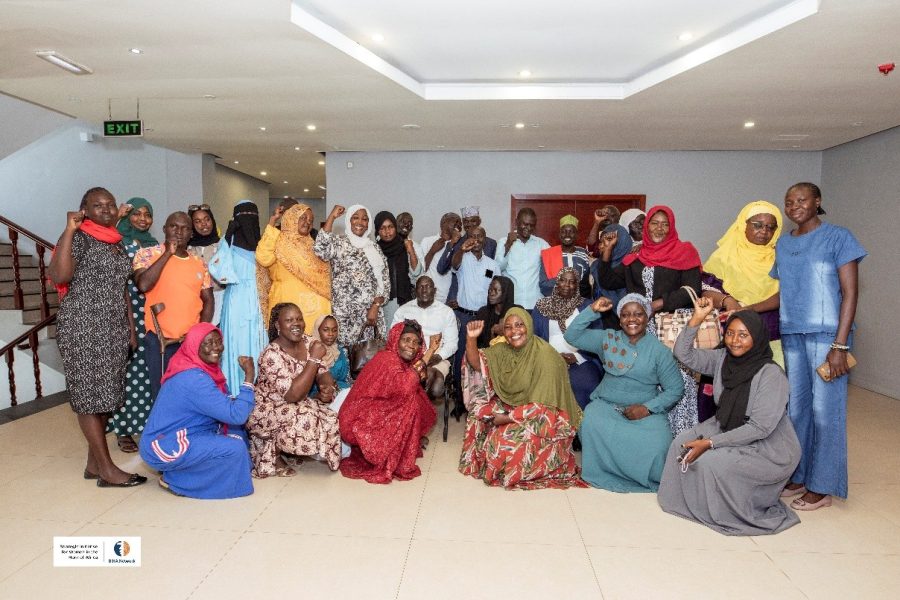
A wave of change is rising in South Sudan as Muslim women step forward to claim their voices, rights, and space within their communities.
On August 25, the Strategic Initiative for Women in the Horn of Africa (SIHA) convened a two-day training in Juba aimed at combating violence against Muslim women and enhancing their financial rights.
For many participants, the training was life changing.
Shifa Mohammed Ibrahim described how the sessions reshaped her understanding of women’s rights and responsibilities.
“I am so grateful and happy to be part of this workshop. I learned many things — including the financial rights of women and the concept of Qiwama (stewardship). I will not keep this knowledge to myself; I will go out and share it with my community,” she said.
On financial rights, Ibrahim was particularly struck by the gap between principle and practice in South Sudan.
“During marriage, the money a husband gives to the bride’s parents should, at least in part, go to the wife. But here in South Sudan, the parents take all of it. As women, we have been marginalized, but this workshop has enlightened us,” she added.
Younger participants also found strength and confidence through the training.
Ayat Abdu Jabar Babiker, 24, shared how the sessions changed her perspective:
“Before, I had limited knowledge and couldn’t clearly explain these issues to others. Muslim women have always been left behind when it comes to opportunities. Now, I know how to engage stakeholders and advocate for women’s rights while following proper procedures,” she explained.
For Babiker, this empowerment is deeply personal. She recalled how her mother discouraged her from completing her education, believing marriage was the only path to stability.
“She told me there’s nothing to gain from school. But now I know education is more valuable. If I don’t get married, is it the end of the world? No. It’s better to be empowered first so I can help others. I’m going to be an ambassador for other women,” she declared.
South Sudan’s patriarchal social structure creates significant barriers for women and girls, limiting their access to education, economic opportunities, and political participation. Issues such as domestic violence and early and forced marriages are widespread and often go unaddressed by legal systems.
Flora Lukudu Latio, SIHA’s Project Officer, emphasized that the training was a critical step in connecting grassroots realities with national reform efforts.
“We have long been aware of these gaps. To address them, we held this inclusive dialogue focusing on Muslim family law, emphasizing feminist principles concerning violence against women and women’s economic rights,” she explained.
Flora added that SIHA and its partners will continue awareness-raising initiatives to ensure that the wider society understands and supports women’s rights.
The Transitional Constitution of the Republic of South Sudan (2011, as amended) mandates the state to promote family welfare and enact protective laws.
In 2022, the government, in partnership with civil society and development organizations, drafted a Family Law Bill aligned with the constitution to ensure liberty and equality for all including women.
The draft law is currently undergoing public consultations, with diverse stakeholders contributing to its finalization.
The workshop also involved men, highlighting the need for shared responsibility in challenging harmful norms and reducing violence.
Hamad Idi Kwaje, representing the South Sudan Islamic Council, said the training helped him distinguish between different legal and religious concepts.
“We learned about Qiwama — not as domination, but as responsibility. It does not mean women are inferior to men. Instead, it calls on men to support women at home and in the workplace. This understanding will help reduce violence against women,” he said.
Similarly, Ibrahim Eltom Lug Ghazali, 58, highlighted how awareness can drive behavioral change.
“Our mistake was treating fiqht; agreements made by people – as if it were sharia, which comes directly from God. This this training clarified the difference. Awareness is what will change behavior,” he explained.
The dialogue sessions, held in both Juba and Wau, ran for two days in each location, combining in-person and virtual participation.
The initiative was facilitated in partnership with Musawah, a global movement for equality and justice in Muslim families, and Women for Justice and Equality (WOJE), ensuring that faith, law, and lived experiences were all part of the conversation.
As consultations on the Family Law Bill continue, local voices are driving a growing demand for reform. What began as a two-day workshop may ripple outward — into families, mosques, and policymaking spaces; signaling that Muslim women in South Sudan are no longer willing to remain silent.
As a result of the knowledge and skills gained from the training, Muslim women are now actively challenging long-held traditions and inspiring their communities to envision a future where women stand as equal partners in driving societal progress.

